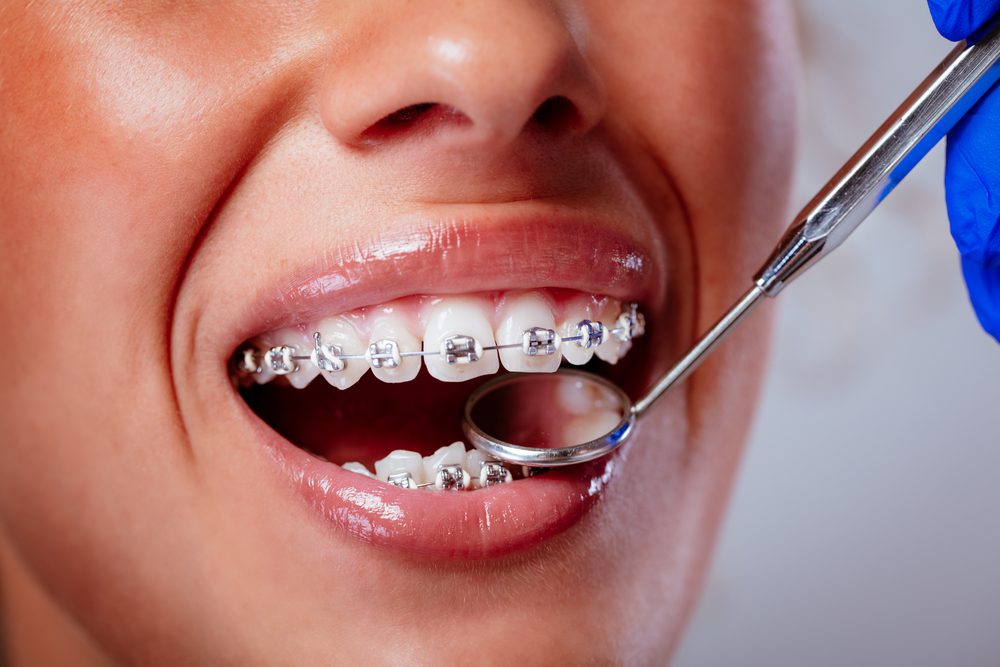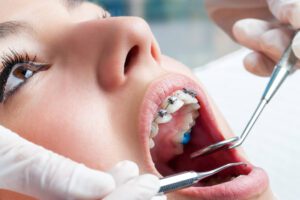Posted on July 10, 2023

Have you or someone you know ever had braces? Did you notice any changes in their behavior or mood?
Braces have become a common orthodontic treatment to correct teeth alignment and improve oral health. However, wearing braces can also have an impact on a person’s psychological well-being.
For many, it can be a difficult and challenging experience that can cause anxiety, low self-esteem, and other emotional difficulties.
In this article, we will explore the psychological impact of having braces. We’ll dive deep into the common emotional and social challenges that arise during orthodontic treatment and offer some tips on how to cope with them.
Whether you or someone you know are considering getting braces or already have them, this article will provide valuable insights on how to navigate the psychological challenges of having braces.
Orthodontic treatment is typically seen as a physical journey to improve dental alignment and oral health. However, the emotional aspect of orthodontic treatment is equally important, yet often overlooked.
Undergoing orthodontic treatment can be a roller coaster of emotions. Patients may feel initial apprehension or fear about how braces will impact their appearance or social interactions.
Once treatment begins, they might experience discomfort or frustration with the restrictions on diet and the necessary increase in oral hygiene practices.
However, as the teeth gradually align and the aesthetic improvement becomes evident, these negative emotions often give way to increased self-confidence and self-esteem.
The psychological benefit of a healthy, beautiful smile can profoundly impact an individual’s social and emotional well-being, boosting their overall life satisfaction.
The emotional journey through orthodontic treatment is unique for every patient. Open communication with the orthodontist can significantly alleviate emotional concerns, ensuring that the process, while transformative, is also as comfortable and positive as possible.
Remember, orthodontics is not just about creating beautiful smiles—it’s also about enhancing the emotional health and well-being of each patient.
Braces are a common dental treatment that many individuals go through to straighten their teeth and improve their smile. While braces can be effective in achieving the desired results, they can also have a significant psychological impact on the individual wearing them.
Here’s a look at the psychological impact of having braces:
Having braces can have a significant psychological impact on an individual’s self-esteem and body image.
Many people feel self-conscious about wearing braces, especially if they are adults. They may feel like their braces are drawing unwanted attention to their teeth, causing them to feel less confident in social situations.
The discomfort that comes with wearing braces can be a significant source of stress and anxiety.
However, the good news is that braces are usually worn for a limited period, and the benefits of having straight teeth and a healthy smile can be significant confidence boosters in the long run.
Having braces can have a significant psychological impact on a person, particularly in terms of social interactions and peer relationships.
For some, the appearance of braces can be a source of self-consciousness and lower self-esteem. This can lead to feelings of isolation and a reluctance to engage in social activities.
There may be concerns about how peers will react to the new appearance, potentially causing anxiety and fear of bullying or ridicule. However, with proper support and understanding, these concerns can be addressed and the individual can regain their confidence and positive social connections.
Having braces can have a significant psychological impact on an individual because they are forced to cope with changes and adjustments.
For many, the visible metal brackets and wires make them feel self-conscious, less attractive, or even embarrassed.
The discomfort and pain associated with getting braces and making regular adjustments can also take a toll on one’s mental health.
Coping with these changes and adjustments can be challenging, but it’s important to remember that the end result of a beautiful, healthy smile is worth the temporary discomfort.
It’s also essential to take care of one’s mental health and seek support from loved ones or a mental health professional if necessary.
Having braces can have a significant impact on a person’s communication and speech abilities. The physical presence of the braces can make it difficult for some people to enunciate and articulate words, leading to difficulties with speech and communication.
Braces can make it uncomfortable to speak, causing some people to avoid talking altogether. This can have both short-term and long-term consequences, affecting social interaction, confidence, and overall quality of life.
However, it’s important to note that these challenges are temporary and the benefits of having straight teeth far outweigh the temporary speech challenges that come with braces.
Wearing braces can have a significant psychological impact on an individual, particularly during the formative years of adolescence. The main concern for most individuals wearing braces is often the impact it has on their self-confidence and self-esteem.
However, the experience of wearing braces can also build resilience, as it teaches individuals to adapt to change and handle potential discomfort or embarrassment.
With proper care and management, wearing braces can ultimately lead to a beautiful and healthy smile, which can boost one’s confidence and self-image for years to come.
 Having braces can be a difficult experience for many people, both physically and psychologically. One of the biggest challenges associated with braces is maintaining good oral hygiene and care.
Having braces can be a difficult experience for many people, both physically and psychologically. One of the biggest challenges associated with braces is maintaining good oral hygiene and care.
Wearing braces makes it harder to brush and floss effectively, which can lead to the buildup of bacteria and plaque in the mouth.
This can result in bad breath, cavities, and other dental issues if not addressed properly. In addition, the visible nature of braces can make people feel self-conscious and less confident about their appearance, which can have a negative psychological impact.
Therefore, it is important for people with braces to pay close attention to their oral hygiene and seek guidance from their orthodontist on how to care for their teeth properly during this time.
Getting braces can be a big change for many people, both physically and emotionally. It can be especially challenging for children and teenagers, who may feel self-conscious about how they look and worry about how others perceive them.
However, having a strong support system can make all the difference in helping individuals navigate this experience.
This can include family members, friends, and healthcare professionals who provide encouragement and guidance. It’s also important to have access to resources such as support groups and counseling to help manage any social or emotional challenges that may arise.
By having these resources in place, individuals with braces can feel more confident and empowered throughout their journey.
It’s not just about the physical changes that come with having braces on one’s teeth, but also the emotional and social aspects that can affect a person’s self-esteem and confidence.
That’s why it’s important for dental professionals to provide professional guidance and communication to their patients throughout the process, from the initial consultation to the end of treatment, helping them understand their treatment plan and providing support every step of the way.
By being understanding and compassionate towards their patients, dental professionals can help make the experience of wearing braces a positive one.
In summary, the psychological impact of having braces is a complex, multi-dimensional process.
While the initial stages of orthodontic treatment may trigger feelings of anxiety, discomfort, or self-consciousness, the journey toward an improved smile often yields profound benefits that far outweigh these initial challenges.
The enhanced self-esteem, increased confidence, and social benefits achieved through orthodontic treatment are significant markers of this transformative process.
Understanding these psychological impacts can help individuals better navigate their orthodontic journey and the emotions that come with it. Open dialogue with your orthodontist about your concerns and feelings is a key aspect of this process.
At Smilebliss, we understand the importance of both the physical and psychological aspects of orthodontic treatment.
Let us accompany you on this life-changing journey and guide you toward a brighter, confident smile that will positively impact all aspects of your life. Contact us now!